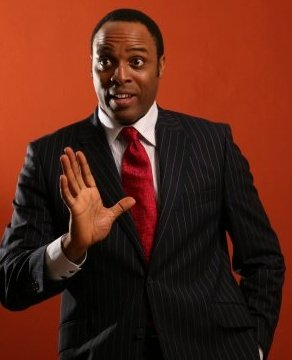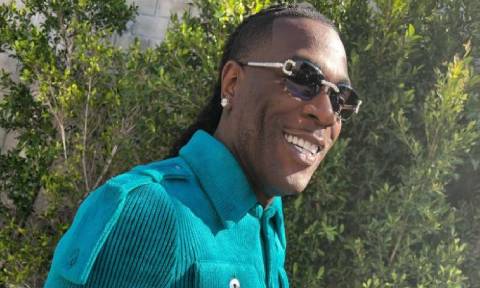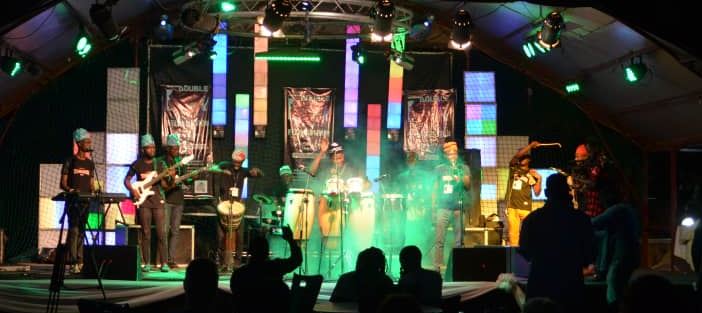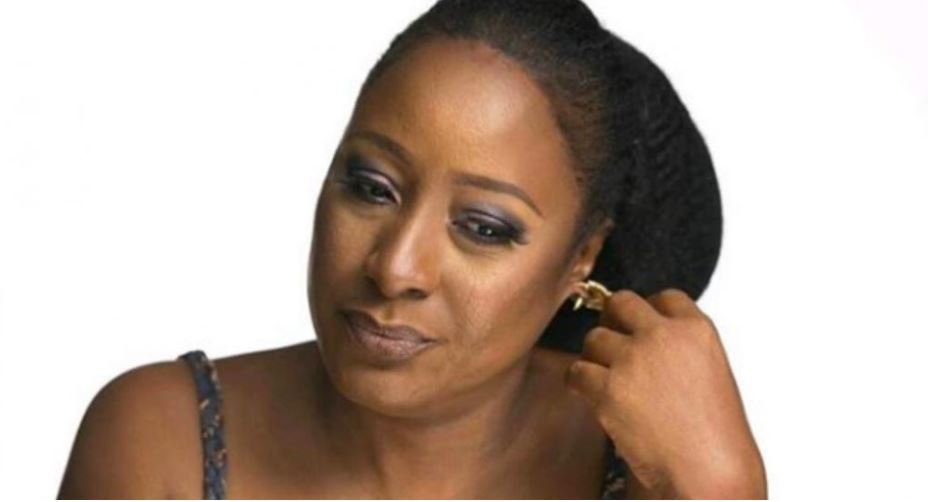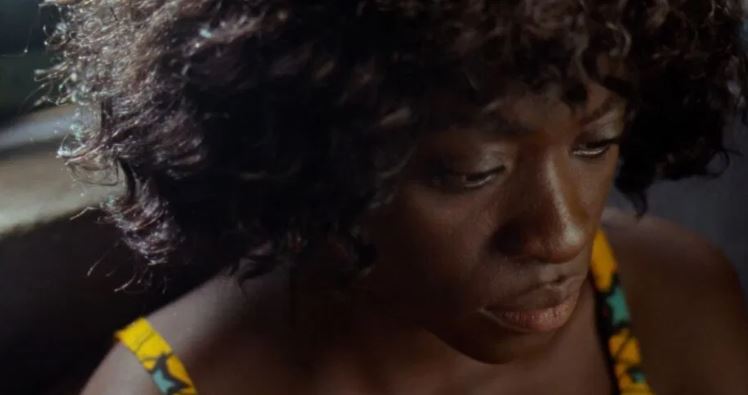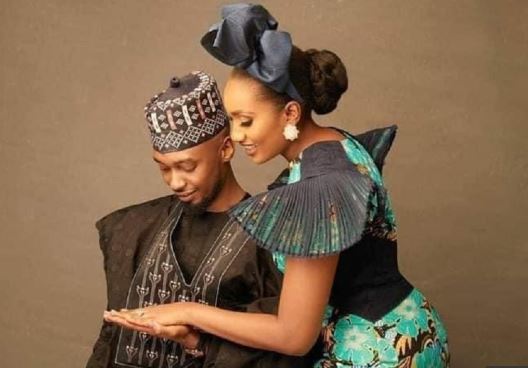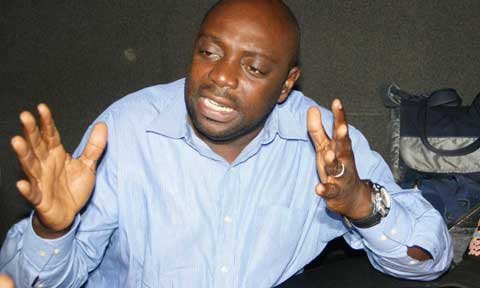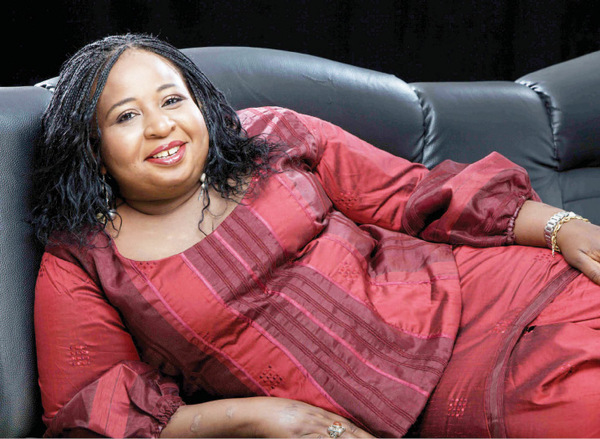
This year’s African Movie Academy Awards (AMAA) will be holding next weekend, Peace Anyaim Osigwe the CEO of the awards along with her crew are ready to host the African movie community as they have done for seven years. The hardworking lady spoke with Hazeez Balogun after a press briefing to usher in the annual awards during the week.
What will make this year’s AMAA different?
Even the build up to the event is already unique. We went to Kenya, and it was a big event at the nominees party. You can remember last year that it was Ghana we went to. This year’s Kenya experience was unique. We had the theme; Nairobi Rocks for Africa.
Is it true that sponsorship is a big challenge this year?
In show business, the show must go on regardless of whatever happens. It challenged us because we couldn’t do thing as timely as we had wanted to. At our secretariat right now, you’ll see work going on because already there’s a process. And that makes things a little easier for us.
The only thing is that we still have challenges with support and sponsorship generally, but with anything that has something to do with cinema across the continent, a lot of companies still don’t see the benefit of supporting their own brand. Unfortunately, sometimes Nollywood practitioners and film makers in Nigeria are not fair to themselves and their colleagues because as you’re trying to do something positive, others are doing something negative which actually ends up affecting the positive thing that we’re supposed to do.
This has not helped our image within corporate Nigeria. It has made corporate Nigeria a bit wary, nobody wants to tarnish their brand.
Will you ascribe the tight sponsorship to the fact that this year is an election year?
I don’t know why this has to be so. I don’t know what election has to do with it. Yes, we have had many people giving us that excuse. “Ah, we cant do much now, you know this is an election year.” What is that all about. Elections is elections and AMAA is AMAA.
AMAA trained some Bayelsans in movie making recently, has that yielded any fruit?
Wow, it has. In fact you will be amazed at what we have achieved with them in such short space of time. Many of them can now handle the camera perfectly, some can now direct, some are actors. Though they are still learning, I can tell you that they are learning realy fast. They have already shot a documentary on Bayelsa, and they even shot a short movie titled ‘The hidden treasure.’ It is an amateur movie, but if you watch it, you will find it interesting.
We noticed that there are less film being shot in Nollywood these days, do you see the reason for this?
Whappened is that the quality of movie has gone up so the less films. The quality of the new films coming out now have extremely exceeded expectations and that is good.
AMAA has surely inspired African movies.
Surely, People aspire to get in the AMAAs. The AMAAs has opened a lot of doors. For the young lady that won in 2009, from Kenya, her film started making festival rounds immediately she won. In a recent interview, she said the AMAAs in terms of the film, changed her life.
I know Kunle Afolayan who won with ‘figurines’ has gone out there and is making a lot of in-roads into the international film circuit. When you win at the AMAAs, its now up to you to decide what to do with the opportunities that come with the winning.
How do you get entries from all the countries?
You know that is one of the reasons we now have regional offices. AMAA has full functional offices across the continent right now. One in Ghana, Egypt, South Africa and Kenya as well.
These offices are mandated to take care of their regions, reach out to film makers, network with them and collect the films. We found out that when we didn’t have regional offices, it was very hard to get those films but now that we do, people know where to send their films. Also our new website is very interactive you can submit your films there.
One place we’re trying hard to network is the North African film-makers because we’re not getting enough films from there. A lot of films are made in Egypt and Morocco and we want them to come in.
We also started the Diaspora Award for short films and features last year and the reason for that was specific. We needed to include our brothers in the diaspora who wanted to be included. They need to be part of this but if we involve them in direct competition. It is going to be too tough for them.
Tell us more about the training AMAA gives young movie makers
We do a lot of training with the guilds and associations in the different regions. This is to help training. And this year, we came up with the short film competition which is going on with the directors’ guild and the script writers’ guild. Basically, it is themed ‘the New Dawn.’ Its about Nigeria at 50.
It’s supposed to be a ten minute short film. Right now they are pitching among themselves and get back to us when they have the right scripts. We’re going to fund the three short films.
This year also, we’re trying to set up the African film Academy Fund for African cinema. Basically, this film fund is going to be a revolving fund which film makers can ask us to loan them.
It will be repayable at the end of the film cycle. So when your film comes out, we will own part of it until the repayment of agreed term loan between us and you. You own your film but you’ll give us credit for supporting that film. Why its revolving and not a grant is that it can be a continuous investment for film makers.
We’re starting small because we’re trying to follow what all the other film festivals and organisations in the world do. We’re targeting at raising between 500,000 and one million dollars within the first year, hopefully we’ll grow the fund in the next five years to ten million dollars.
But we can help with the development of script to get it to the right stage where other funders will be interested and banks will see the viability. We’ll also fund distribution because distribution is the biggest African cinema.
The fund will not be totally technically managed by AFA. We have some fund managers. The AFA is going to set up a board and using the name AMAA has built over the last seven years to raise the funds for this film fund and then let the fund managers handle the rest.
In actualising this dream, have you given thought to possible oppositions?
Our name is African film Academy Film Fund. We, as an organisation have the right to set up a film fund within our own mandate as AFA. The other organisations like FEPACCI a sister organisation, has a mandate to also set up the African Films Fund.
We’re not setting up the African Film Fund. They can set that up and I’m sure that eventually, they will set if up. Theirs is an organisation that has been there for 40 years.
AFA has only been here for seven to eight years including the year before we started the AMAA. We’re setting up the film fund because we know that it is the greatest intervention we as the Academy can make in African cinema right now.
We’re not a political organisation. So I don’t see the conflict of interest. So I think that anybody looking at it should see it as a great intervention that needs to happen. African cinema is actually drowning in abject poverty.
Was your father a major influence as you grew up.
Yes, I’m an only girl with seven older brothers, who are all tough, big guys. And I had the most amazing father who treated my brothers and I the same. In Africa it’s really unusual to have a father that would recognize his female child as equal.
My dad is today being studied by many universities across the world as a philosopher who had his own understanding. He had a philosophy that he called the “Holistic Approach to Human Existence.” He brought us up with the philosophy that money was not the biggest thing in the world. Money is the commonest commodity: everybody has it. So you don’t look down on people because you have money and they don’t. He taught us to respect all people.
My dad made me believe that if I wanted to climb the highest mountain, I could do it if I had a will to do it. He also gave me an understanding of the spiritual side of life, which has helped me create a balance in everything I do. At some points in my life when I floated away from Christianity, he said to me, “It’s all right to experiment. When you’re ready, you’ll come back and find yourself and you’ll know that everything is the same. But you have to have tolerance for every religion, because it’s almost all the same.” That was important growing up in a mixed environment, where you are surrounded by many different beliefs.
You are a poet, a TV/film director and producer, creator of AMAA, which of your accomplishment are you most proud of?
I think I’m most proud of the African Movie Academy Awards (AMAA). They are one of the things that has changed African cinema in a very positive way. The AMAAs started in 2005, and as I travel more, as I meet more people, I’m suddenly realizing, “Wow, I actually did do something.” People talk about the AMAAs as an event that brings all fillmmakers in Africa and from the African diaspora together.
With the AMAAs, we have an award where we recognize ourselves amongst ourselves, and there’s a stimulated competition between the African countries over who’s going to win the next one. So it makes better films for us. People actually go out of their way to make films for the AMAA awards.
It started out just as something I was going to do, so that we could have one day as filmmakers to meet and sit down together. But now it’s something that everybody looks forward to. So when I look back, I think that’s my biggest achievement.
